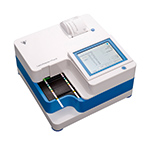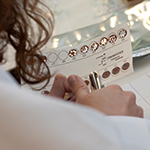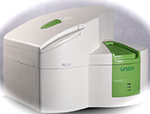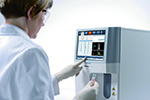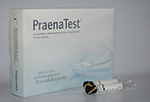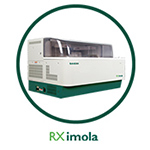Randox Homocysteine- Innovative diagnostic testing
The Randox Homocysteine assay offers laboratories a convenient two-part, liquid ready-to-use option for the accurate determination of Homocysteine concentrations in serum or plasma. Additional benefits associated with Randox Homocysteine include two levels of calibrator included in the kit for user convenience; limited interference helping ensure accurate and reliable results are returned; and an extensive measuring range of 1.74-47.9 µmol/l facilitating comfortable detection of abnormal levels related to all Homocysteine associated disease states. Furthermore, Randox Homocysteine is suitable for use on a variety of clinical chemistry analyzers via a range of instrument specific applications.
For more information click here
Read more




